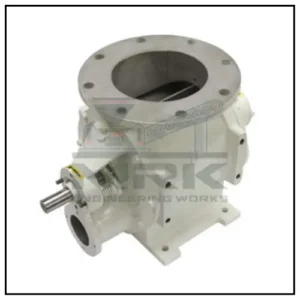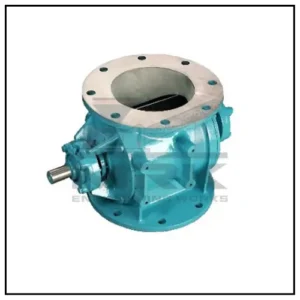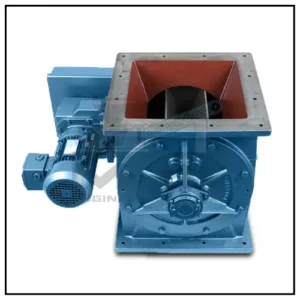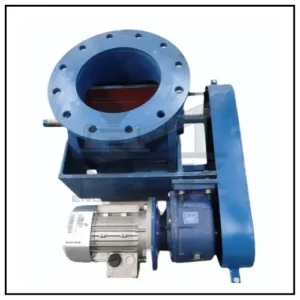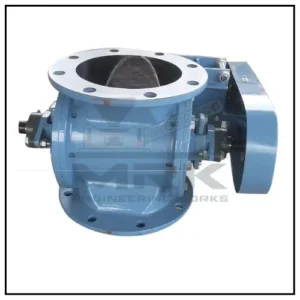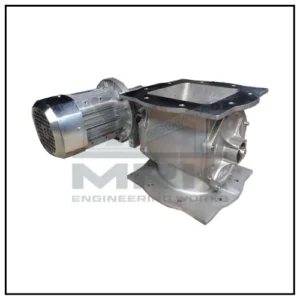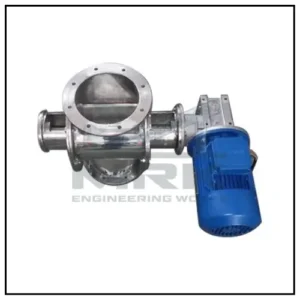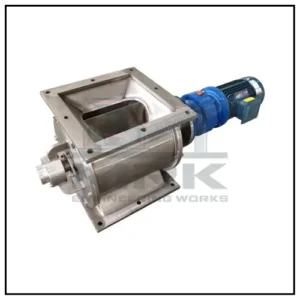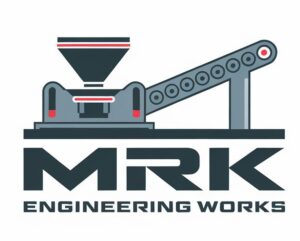The chemical industry is at the forefront of innovation, constantly seeking ways to improve efficiency, precision, and scalability. In this fast-paced sector, machinery plays a crucial role in maintaining the quality and consistency of products while minimizing costs.
High-speed dispenser machines have emerged as a game-changing solution, streamlining chemical processing with unmatched speed and accuracy.
This article explores their role, benefits, applications, and the future of these machines in the chemical industry.
What is a High-Speed Dispenser Machine for Chemical Industries?
A high-speed dispenser machine is a specialized piece of equipment designed to accurately measure, mix, and dispense chemical materials at high speeds. These machines are widely used in the chemical industry for handling liquids, pastes, powders, or other materials that require precise dosing and uniform blending.
Key features of high-speed dispenser machines include:
- High-Speed Operation: Capable of processing materials at rapid rates to meet industrial-scale demands.
- Precision and Control: Advanced controls ensure accurate measurements, minimizing errors and material wastage.
- Versatile Design: Compatible with a range of materials, including viscous liquids, granular powders, and even reactive chemicals.
- Durable Construction: Built with corrosion-resistant materials to withstand harsh chemical environments.
How Does a High-Speed Dispenser Machine Benefit Chemical Manufacturing Processes?
High-speed dispenser machines bring transformative benefits to chemical manufacturing, addressing critical needs such as efficiency, accuracy, and scalability. Here’s how they make a difference:
Improved Production Efficiency:
- These machines operate at speeds that far exceed manual or traditional methods, allowing manufacturers to produce larger quantities in less time.
- Automated systems reduce the need for constant human intervention, freeing up labor for other tasks.
Enhanced Product Quality:
- Consistent mixing and dispensing ensure uniformity in product batches, crucial for maintaining quality standards in chemicals like adhesives, coatings, and pharmaceuticals.
- Reduced variations in formulations lead to reliable performance in end products.
Cost-Effectiveness:
- By reducing material wastage and operational downtime, high-speed dispensers contribute to significant cost savings over time.
- Automation lowers labor costs by reducing manual involvement.
Scalability and Flexibility:
- High-speed dispensers can be scaled to match production demands, from small-scale formulations to mass production.
- Programmable systems allow quick adaptation to different material types or production needs.
Enhanced Safety:
- Minimizing human exposure to hazardous chemicals ensures a safer working environment.
- Enclosed designs and automated controls reduce the risk of spills and contamination.
Environmental Sustainability:
- Precise dosing minimizes waste and promotes the efficient use of raw materials.
- Advanced models include energy-saving features, contributing to reduced carbon footprints.
What Materials Can Be Processed Using a High-Speed Dispenser Machine in the Chemical Industry?
High-speed dispenser machines are engineered to handle a wide variety of materials, making them versatile tools for different chemical processes. Here are some common materials processed:
Liquids:
- Viscous liquids: Such as resins, adhesives, and silicone oils.
- Low-viscosity liquids: Like solvents, cleaning agents, and lubricants.
- Corrosive liquids: Special designs ensure safe handling of acids and alkalis.
Powders and Granules:
- Dry chemicals, pigments, and fillers used in manufacturing coatings and plastics.
- Granulated materials for pharmaceutical and agricultural applications.
Gels and Pastes:
- Used in producing cosmetics, sealants, and high-performance lubricants.
- Applications where homogeneity and precise dosing are critical.
Reactive or Sensitive Materials:
- High-speed dispensers with enclosed systems manage reactive chemicals, ensuring safety and stability during processing.
Specialty Chemicals:
- Includes additives, catalysts, and compounds requiring precise formulation
Related Products
What Are the Advantages of Using a High-Speed Dispenser in Chemical Applications?
High-speed dispensers provide transformative benefits for chemical manufacturing processes. Here’s an in-depth look at their advantages:
Enhanced Precision and Accuracy:
- High-speed dispensers are equipped with advanced controls to ensure precise measurements and consistent dosing. This minimizes errors in chemical formulations and ensures batch uniformity.
Faster Production Rates:
- The rapid processing capabilities of these machines significantly increase throughput, enabling manufacturers to meet high production demands without compromising quality.
Reduced Material Wastage:
- Accurate dispensing minimizes overuse or spillage of expensive or sensitive chemicals, saving costs and reducing environmental impact.
Improved Product Quality:
- Uniform mixing and consistent output improve the quality of the final product, whether it’s a coating, adhesive, or pharmaceutical formulation.
Labor and Cost Efficiency:
- Automated operations reduce the need for manual labor, cutting down on operational costs. Workers can focus on higher-value tasks rather than repetitive manual mixing or dispensing.
Safer Operations:
- Enclosed systems and automated handling minimize human exposure to hazardous chemicals, ensuring compliance with safety regulations and reducing workplace risks.
Flexibility in Material Handling:
- High-speed dispensers can process a wide range of materials, from low-viscosity liquids to viscous pastes and powders, making them suitable for various chemical applications.
Environmental Benefits:
- By reducing wastage and optimizing energy usage, these machines align with sustainable manufacturing practices.
How Does a High-Speed Dispenser Machine Improve Efficiency in the Chemical Industry?
Efficiency is a cornerstone of the chemical industry, and high-speed dispenser machines play a crucial role in achieving it. Here’s how:
Automated Operations:
- Automation eliminates the need for manual intervention, reducing errors and speeding up processes like mixing, dosing, and filling.
Faster Production Cycles:
- High-speed dispensers are designed to operate continuously and at high speeds, dramatically increasing production output.
Consistency Across Batches:
- Advanced control systems ensure that every batch has the same chemical composition, which is critical for meeting quality standards in industries like pharmaceuticals and coatings.
Integration with Production Lines:
- These machines can be seamlessly integrated into automated production lines, enabling synchronized operations and real-time adjustments.
Minimized Downtime:
- Features like automated cleaning systems and quick-change mechanisms reduce downtime for maintenance, ensuring uninterrupted production.
Optimized Use of Resources:
- By precisely measuring and dispensing materials, high-speed dispensers ensure that raw materials are used efficiently, cutting costs and maximizing output.
Scalable Production:
- Whether for small-batch production or large-scale manufacturing, these machines can be scaled to meet varying operational needs.
What Are the Key Features of a High-Speed Dispenser Machine for Chemical Industries?
Modern high-speed dispensers come with a range of features designed to optimize performance and versatility. Here are the key features:
High-Speed Operation:
- Capable of processing materials at rapid rates, meeting the high demands of industrial-scale production.
Precision Control Systems:
- Advanced software and programmable logic controllers (PLCs) enable accurate dosing, mixing, and monitoring.
Material Compatibility:
- Designed to handle various materials, including low-viscosity liquids, viscous pastes, powders, and corrosive chemicals.
Durable Construction:
- Built with materials such as stainless steel and corrosion-resistant alloys to withstand harsh chemical environments.
Automation and Smart Integration:
- IoT-enabled machines allow remote monitoring and control, providing real-time data on performance and material usage.
Self-Cleaning Mechanisms:
- Automated cleaning systems reduce downtime and prevent cross-contamination between batches.
Customizable Configurations:
- Machines can be tailored to specific production requirements, with options for different nozzle sizes, speed settings, and material handling capacities.
Safety Features:
- Enclosed systems, leak detection sensors, and emergency shut-off mechanisms ensure safe handling of hazardous chemicals.
Energy Efficiency:
- Advanced motors and energy-saving modes reduce power consumption, contributing to sustainable manufacturing practices.
Compact and Modular Design:
- Many high-speed dispensers feature modular components, making them easy to install, upgrade, or replace.
What Industries Can Benefit from a High-Speed Dispenser Machine for Chemicals?
High-speed dispenser machines are versatile tools that cater to a wide array of industries requiring precision, speed, and efficiency in handling chemicals. Here’s a breakdown of industries that benefit:
Pharmaceutical Industry:
- Used in precise dosing of active ingredients, excipients, and other formulations.
- Essential for manufacturing tablets, syrups, and ointments with consistent composition.
Paints and Coatings Industry:
- Enables accurate mixing and dispensing of pigments, binders, and additives.
- Ensures uniformity in paint textures, shades, and finishes.
Adhesives and Sealants Industry:
- High-speed dispensers handle viscous materials like epoxy, polyurethane, and silicone adhesives.
- Ensure consistent application for products used in construction, automotive, and electronics.
Cosmetics and Personal Care Industry:
- Used in creating lotions, creams, shampoos, and makeup products.
- Delivers precise measurements for consistent product quality and texture.
Food and Beverage Industry:
- Facilitates accurate dispensing of food-grade chemicals, flavorings, and preservatives.
- Critical in ensuring compliance with safety and hygiene standards.
Agricultural Chemicals Industry:
- Dispenses fertilizers, pesticides, and other agrochemicals with precision.
- Reduces wastage and ensures the correct application rates.
Plastics and Polymers Industry:
- Handles additives, colorants, and stabilizers used in polymer production.
- Ensures even distribution of materials for high-quality plastic products.
Energy and Petrochemical Industry:
- Used in handling lubricants, fuels, and specialty chemicals for energy applications.
- Assists in creating uniform blends and formulations.
Electronics Industry:
- Enables precise application of conductive adhesives, encapsulants, and potting materials.
- Critical in ensuring the reliability and durability of electronic components.
Water Treatment Industry:
- Accurately dispenses chemicals like chlorine and coagulants for water purification.
- Enhances the efficiency of treatment processes while maintaining safety.
How Does a High-Speed Dispenser Machine Ensure Accurate Chemical Dispensing?
Accuracy is a fundamental aspect of high-speed dispensers, achieved through advanced design and technology. Here’s how these machines ensure precise chemical dispensing:
Advanced Control Systems:
- Incorporates programmable logic controllers (PLCs) that monitor and adjust dispensing in real-time.
- Allows pre-set parameters for flow rate, volume, and pressure, minimizing errors.
Precision Measurement Sensors:
- High-accuracy sensors (e.g., load cells, flow meters) continuously monitor the amount of material dispensed.
- Feedback loops ensure corrections are made instantly for consistent output.
Customizable Settings:
- Operators can program dispensing rates and volumes to match specific requirements, accommodating different materials and applications.
Consistent Flow Regulation:
- Features like servo-driven motors and advanced pump technologies maintain steady flow rates, even for viscous or challenging materials.
Nozzle Design and Technology:
- Precision-engineered nozzles deliver exact quantities without spillage or dripping.
- Multi-nozzle configurations allow simultaneous dispensing of multiple materials.
Automated Calibration:
- Machines self-calibrate to adjust for factors like temperature, material viscosity, or pressure fluctuations.
- Maintains dispensing accuracy under variable conditions.
Data Integration and Monitoring:
- IoT-enabled systems provide real-time data on dispensing performance, enabling operators to track and ensure accuracy.
Minimized Human Error:
- Automated systems reduce reliance on manual operations, which are prone to inconsistency.
What Safety Features Are Integrated into a High-Speed Dispenser Machine for Chemical Industries?
Handling chemicals requires strict safety measures to protect workers, maintain product integrity, and comply with regulations. High-speed dispenser machines incorporate numerous safety features:
Enclosed Systems:
- Fully enclosed designs prevent exposure to hazardous chemicals, protecting operators and the environment.
Leak Detection Sensors:
- Integrated sensors detect leaks or spills and trigger alerts or shut down operations automatically.
Emergency Shut-Off Mechanisms:
- Equipped with emergency stop buttons to immediately halt operations in case of malfunctions.
Corrosion-Resistant Materials:
- Constructed with stainless steel or specialized alloys to withstand corrosive chemicals, ensuring long-term safety and durability.
Explosion-Proof Designs:
- Machines handling volatile chemicals often include explosion-proof components, such as sealed motors and electrical systems.
Automated Cleaning Systems:
- Self-cleaning mechanisms reduce the risk of cross-contamination and ensure safe handling of reactive chemicals.
Pressure and Temperature Monitoring:
- Sensors monitor operational conditions, preventing unsafe pressure build-ups or overheating.
Operator Safety Interlocks:
- Interlocks prevent the machine from running when access panels are open, ensuring safe maintenance and operation.
Real-Time Alarms and Notifications:
- Audio and visual alarms alert operators to any anomalies, such as material blockages or system malfunctions.
Compliance with Safety Standards:
- Machines are designed to meet industry safety standards, such as OSHA, ATEX, or CE certifications, ensuring adherence to regulations.
Other Products
-
Pharma Industry Related Our Products
Rotary Airlock Valve – 250 mm Dia Outlet Mild Steel for Pharma Industries
₹1.00Rated 0 out of 5 -
Pharma Industry Related Our Products
Rotary Airlock Valve – 300 mm Dia Outlet Mild Steel for Pharma Industries
₹1.00Rated 0 out of 5 -
Pharma Industry Related Our Products
Rotary Airlock Valve – 350 mm Dia Outlet Mild Steel for Pharma Industries
₹1.00Rated 0 out of 5 -
Pharma Industry Related Our Products
Rotary Airlock Valve – 400 mm Dia Outlet Mild Steel for Pharma Industries
₹1.00Rated 0 out of 5 -
Pharma Industry Related Our Products
Rotary Airlock Valve – 450 mm Dia Outlet Mild Steel for Pharma Industries
₹1.00Rated 0 out of 5 -
Pharma Industry Related Our Products
Rotary Airlock Valve – 450 mm Dia Outlet Stainless Steel for Pharma Industries
₹1.00Rated 0 out of 5 -
Pharma Industry Related Our Products
Rotary Airlock Valve – 350 mm Dia Outlet Stainless Steel for Pharma Industries
₹1.00Rated 0 out of 5 -
Pharma Industry Related Our Products
Rotary Airlock Valve – 400 mm Dia Outlet Stainless Steel for Pharma Industries
₹1.00Rated 0 out of 5
Are High-Speed Dispenser Machines Customizable for Specific Chemical Production Needs?
Yes, high-speed dispenser machines are highly customizable, designed to meet the diverse and specific requirements of chemical production processes. Here’s how customization is achieved:
Modular Designs:
- Many machines are built with modular components, allowing manufacturers to select the parts and features that best suit their needs.
- Modules for specific tasks, such as heating, mixing, or multi-stage dispensing, can be added or removed.
Adjustable Dispensing Parameters:
- Machines can be programmed to dispense specific volumes, flow rates, and pressure levels based on the chemical properties of the material.
- Precision control over these parameters ensures optimal performance for varying materials.
Material-Specific Configurations:
- Machines can be tailored to handle specific materials such as corrosive chemicals, highly viscous substances, or fine powders.
- Coatings and material choices like stainless steel, PTFE, or ceramic ensure compatibility with the chemicals processed.
Custom Nozzle Designs:
- Dispensers can be fitted with nozzles designed for the viscosity, flow rate, and application method of specific chemicals.
- Multi-nozzle systems allow simultaneous dispensing of different materials.
Automation and Integration:
- Machines can be equipped with IoT-enabled systems for remote monitoring and real-time adjustments.
- They can integrate seamlessly with existing production lines and software systems like ERP or MES for improved workflow.
Application-Specific Features:
- For Paints and Coatings: Machines can include mixing systems to maintain pigment suspension.
- For Pharmaceuticals: High-precision sensors ensure exact dosing and compliance with regulatory standards.
- For Adhesives: Heated systems facilitate the flow of high-viscosity materials.
Batch vs. Continuous Operation:
- Machines can be customized for batch production or continuous dispensing, depending on production volume and workflow requirements.
Safety Features Customization:
- Additional safety features, such as explosion-proof designs or enhanced containment systems, can be included for handling volatile or hazardous chemicals.
What is the Typical Lifespan of a High-Speed Dispenser Machine Used in Chemical Industries?
The lifespan of a high-speed dispenser machine depends on several factors, including its build quality, operating conditions, and maintenance practices. Here’s an overview:
Average Lifespan:
- A high-quality dispenser machine typically lasts 10 to 15 years with proper maintenance and care.
- Machines in harsh environments or with heavy usage may have a slightly shorter lifespan.
Factors Influencing Lifespan:
- Material Quality: Machines made with corrosion-resistant materials like stainless steel or specialized alloys have longer lifespans.
- Frequency of Use: Continuous operations may lead to faster wear and tear compared to intermittent use.
- Maintenance Practices: Regular cleaning, lubrication, and part replacements significantly extend the life of the machine.
- Chemical Compatibility: Using the machine with materials it wasn’t designed for can cause premature damage.
Replacement and Upgrades:
- Certain components, such as nozzles, seals, or gaskets, may need periodic replacement to maintain optimal performance.
- Machines with modular or upgradeable designs can incorporate new technologies, prolonging their usability.
Warranty and Support:
- Manufacturers often provide warranties and after-sales support, which can include servicing or replacement parts to ensure longevity.
End-of-Life Considerations:
- Even after the typical lifespan, parts of the machine can often be refurbished or repurposed, reducing waste.
How Do High-Speed Dispensers Contribute to Sustainability in Chemical Manufacturing?
High-speed dispenser machines play a pivotal role in advancing sustainability in the chemical industry through efficient resource use, waste reduction, and energy conservation. Here’s how:
Reduction in Material Waste:
- Precision dispensing ensures that only the required amount of chemical is used, reducing wastage.
- Accurate dosing minimizes over-application and material losses, particularly with expensive or rare chemicals.
Optimized Use of Resources:
- Machines ensure consistent mixing and formulation, preventing the need for batch rework, which can waste energy and materials.
- Automated systems reduce the overuse of auxiliary materials like solvents or water.
Energy Efficiency:
- Modern dispensers are equipped with energy-saving motors and systems that consume less power during operation.
- Features like standby modes and efficient heating systems reduce energy consumption.
Reduced Carbon Footprint:
- Efficient operations lead to lower emissions associated with manufacturing processes.
- Integration with smart technologies enables better energy management and operational monitoring, further lowering carbon output.
Handling of Eco-Friendly Chemicals:
- Dispensers are capable of processing bio-based or environmentally friendly chemicals, supporting the shift toward greener products.
Long-Lasting Equipment:
- Durable construction and extended lifespans reduce the frequency of machine replacements, minimizing manufacturing waste.
Minimized Environmental Spills and Leaks:
- Advanced safety features prevent spills or leaks during operations, protecting both workers and the environment.
- Enclosed systems ensure safe handling of hazardous chemicals, preventing contamination.
Support for Circular Economy Practices:
- Machines can be integrated into systems designed to reuse and recycle chemicals, such as solvent recovery or closed-loop dispensing processes.
Compliance with Environmental Regulations:
- Precise control and reduced waste help manufacturers meet stringent environmental standards, avoiding fines and promoting sustainability.
Conclusion:
High-speed dispenser machines are pivotal in transforming the chemical manufacturing industry by enhancing efficiency, precision, and scalability.
With their advanced capabilities, these machines ensure consistent product quality, reduce operational costs, and improve workplace safety by automating the handling of hazardous materials.
Their versatility in processing a wide range of substances, including liquids, powders, and reactive chemicals, makes them indispensable in diverse applications from adhesives to pharmaceuticals.
By integrating such cutting-edge technology, chemical industries can achieve sustainability, reduce waste, and meet ever-increasing production demands, ultimately driving innovation and competitiveness in the market.

